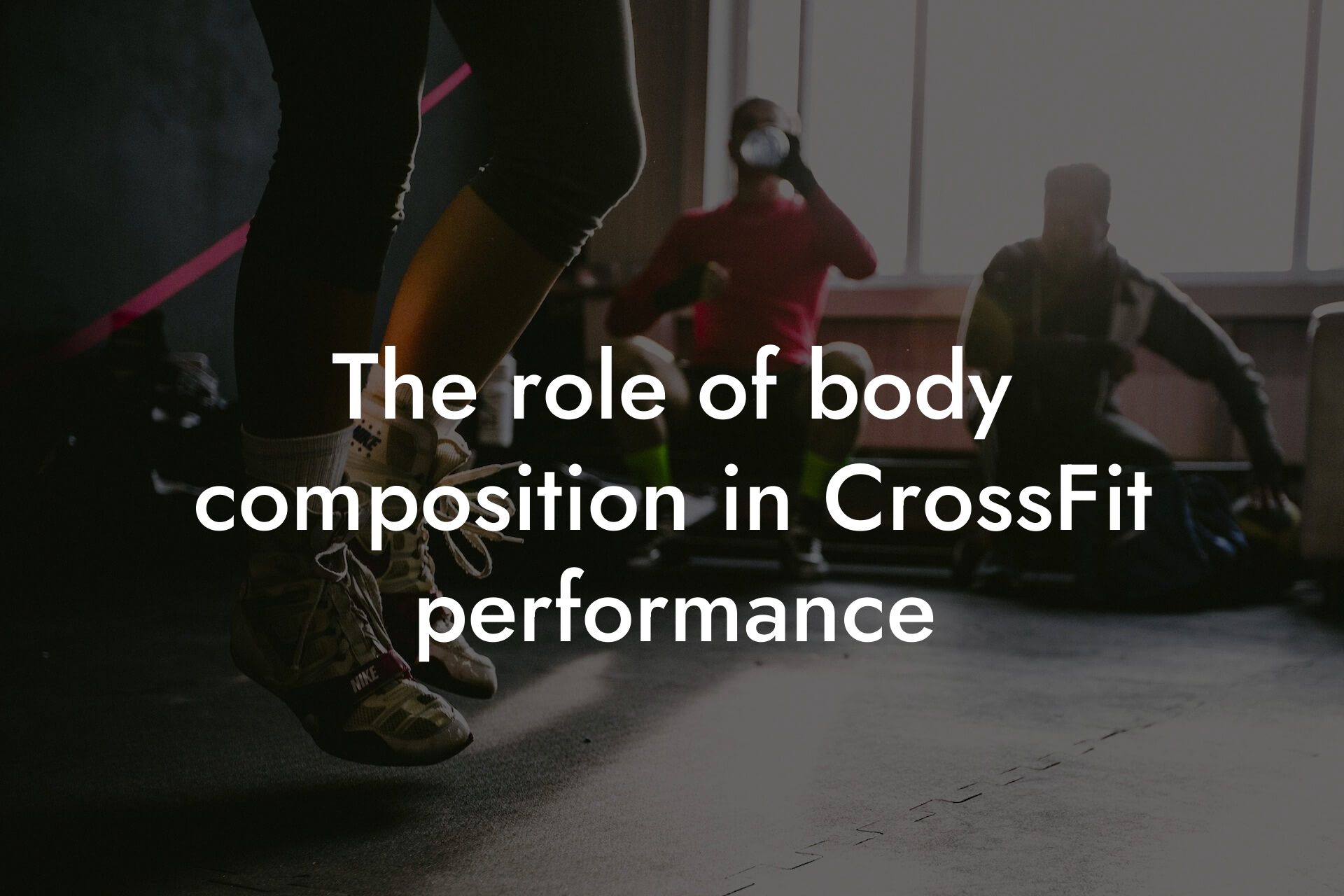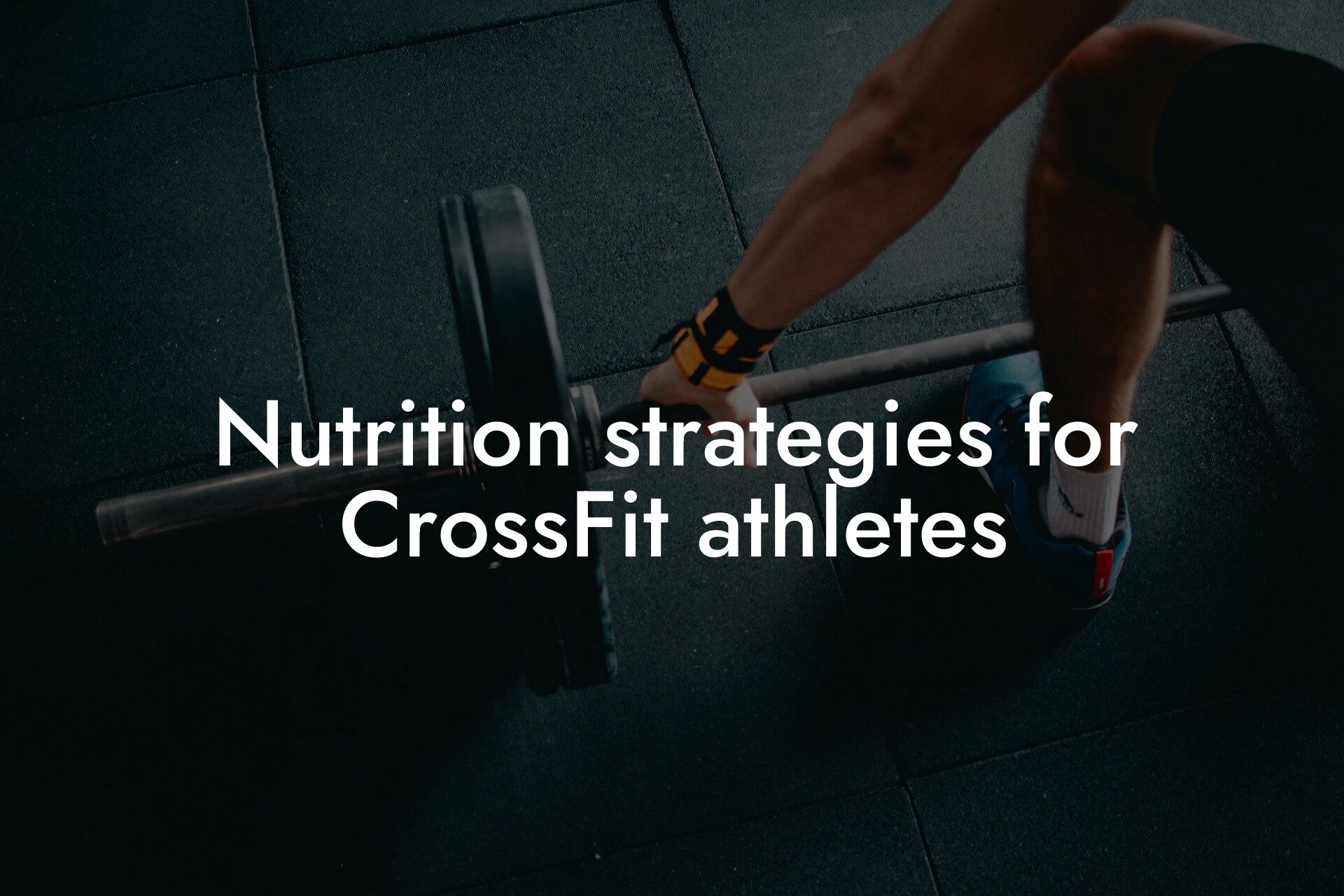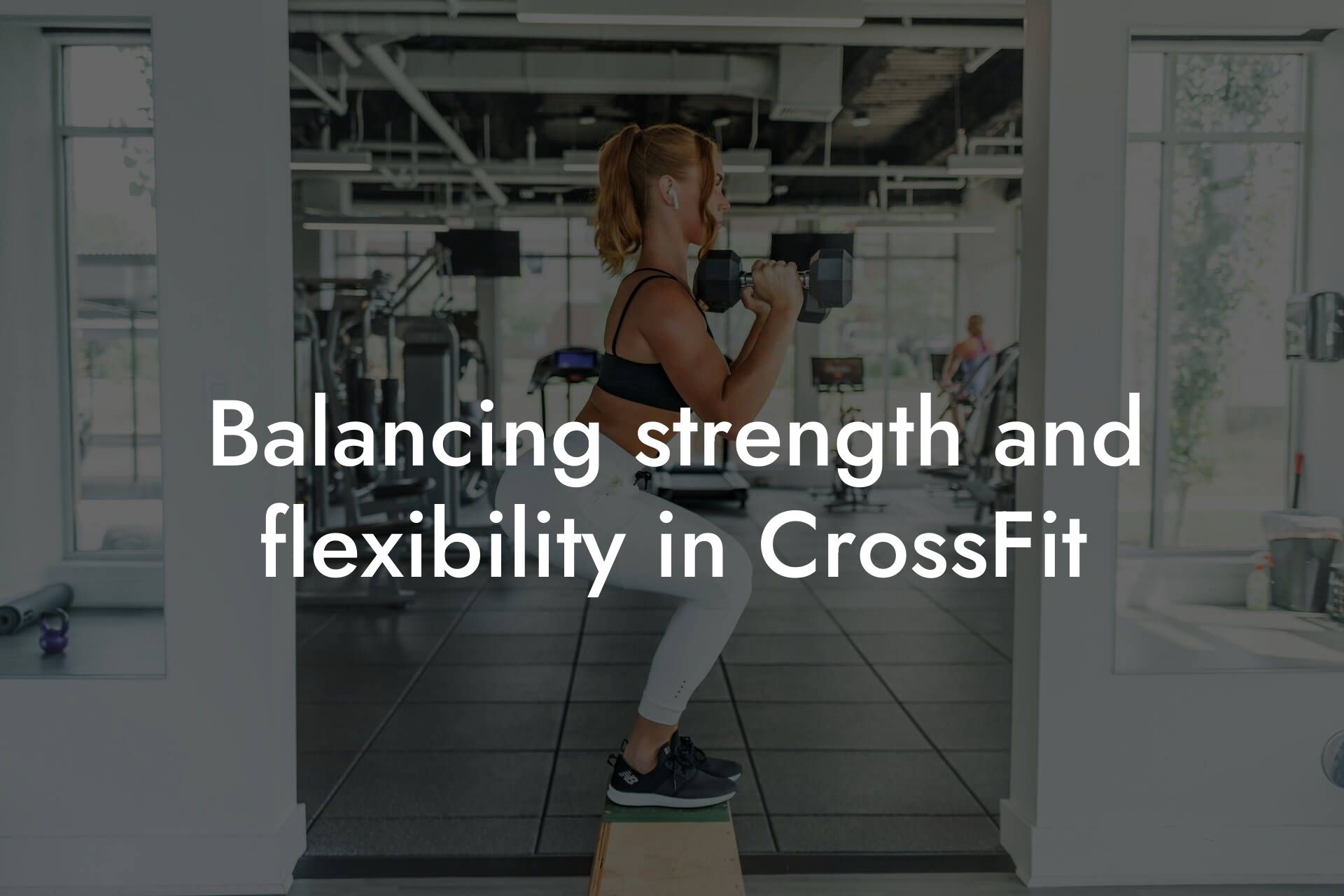As a high-earning professional, you understand the importance of maintaining a healthy and fit physique. However, what you may not know is that bone density plays a critical role in your overall health and fitness. Bone density refers to the amount of minerals, such as calcium and phosphorus, present in your bones. Having low bone density can lead to osteoporosis, a condition characterized by brittle and fragile bones, increasing the risk of fractures and osteoporotic diseases.
Table of Contents
- The Benefits of CrossFit Training for Bone Density
- How CrossFit Training Improves Bone Density
- Key Exercises for Maintaining Bone Density with CrossFit Training
- Incorporating Progressive Overload into Your CrossFit Routine
- Additional Tips for Maintaining Bone Density with CrossFit Training
- Monitoring Your Progress with DEXA Scans
- Frequently Asked Questions
Maintaining optimal bone density is crucial, especially as you age. CrossFit training, a high-intensity fitness program, can be an effective way to improve bone density. In this article, we will explore how CrossFit training can help maintain bone density and provide you with a comprehensive guide on how to incorporate it into your fitness routine.
The Benefits of CrossFit Training for Bone Density
Research has shown that high-impact exercises, such as those incorporated in CrossFit training, can help improve bone density. This is because high-impact exercises stimulate the growth of new bone tissue, increasing bone density and strength. CrossFit training, in particular, is beneficial for bone density due to its focus on functional movements, weightlifting, and high-intensity exercises.
Some of the benefits of CrossFit training for bone density include:
- Increased bone density: CrossFit training has been shown to increase bone density in both men and women, reducing the risk of osteoporosis and fractures.
- Improved bone strength: CrossFit training helps to strengthen bones, making them more resilient to injury and stress.
- Enhanced muscle mass: CrossFit training promotes muscle growth and development, which is essential for maintaining bone density.
How CrossFit Training Improves Bone Density
CrossFit training improves bone density through several mechanisms:
- Mechanical stress: High-impact exercises, such as weightlifting and jumping, apply mechanical stress to bones, stimulating the growth of new bone tissue.
- Muscle contraction: Muscle contractions, such as those experienced during strength training, help to pull on bones, stimulating bone growth and density.
- Hormonal response: High-intensity exercises, such as those incorporated in CrossFit training, stimulate the production of hormones, such as testosterone and growth hormone, which are essential for bone growth and development.
Key Exercises for Maintaining Bone Density with CrossFit Training
While all CrossFit exercises can help improve bone density, some exercises are more effective than others. Here are some key exercises to incorporate into your CrossFit routine:
- Squats: Squats are an essential exercise for building strength and bone density in the legs and hips.
- Deadlifts: Deadlifts work multiple muscle groups, including the legs, hips, and back, and are effective for building bone density.
- Burpees: Burpees are a high-intensity exercise that combines strength training and cardio, making them an effective exercise for improving bone density.
- Box jumps: Box jumps are a high-impact exercise that stimulates the growth of new bone tissue in the legs and hips.
Incorporating Progressive Overload into Your CrossFit Routine
Progressive overload, or gradually increasing the weight or resistance used in exercises, is essential for improving bone density. This is because progressive overload stimulates the growth of new bone tissue, increasing bone density and strength.
To incorporate progressive overload into your CrossFit routine, try the following:
- Gradually increase the weight or resistance used in exercises over time.
- Increase the number of repetitions or sets performed.
- Decrease rest time between exercises and sets.
Additional Tips for Maintaining Bone Density with CrossFit Training
In addition to incorporating CrossFit training and progressive overload into your fitness routine, here are some additional tips for maintaining bone density:
- Get enough calcium and vitamin D: Calcium and vitamin D are essential for bone growth and development. Ensure you are getting enough through your diet or supplements.
- Stay hydrated: Adequate hydration is essential for bone health. Aim to drink at least 8-10 glasses of water per day.
- Get enough sleep: Adequate sleep is essential for bone growth and development. Aim for 7-9 hours of sleep per night.
Monitoring Your Progress with DEXA Scans
At Tano Performance Group, we understand the importance of tracking your progress and monitoring your bone density. Our state-of-the-art DEXA machine provides a comprehensive body assessment, including bone density measurements.
By incorporating regular DEXA scans into your fitness routine, you can track your progress, identify areas for improvement, and make data-driven decisions about your training and nutrition.
Maintaining optimal bone density is crucial for overall health and fitness. CrossFit training, combined with progressive overload and proper nutrition, can be an effective way to improve bone density. By incorporating the exercises and tips outlined in this article into your fitness routine, you can improve your bone density and reduce the risk of osteoporosis and fractures. Remember to track your progress with regular DEXA scans and make data-driven decisions about your training and nutrition.
Frequently Asked Questions
What is bone density and why is it important?
Bone density refers to the measure of how thick and strong your bones are. It's an important aspect of overall health, as strong bones can help prevent osteoporosis, fractures, and other bone-related disorders. As we age, our bone density naturally decreases, which can lead to an increased risk of osteoporosis and fractures. Maintaining healthy bone density is crucial, especially for high-earning professionals who lead active lifestyles.
How does CrossFit training help with bone density?
CrossFit training is a high-intensity, functional fitness program that incorporates a variety of exercises, including weightlifting, gymnastics, and cardio. This type of training helps improve bone density by stimulating osteogenesis, the process by which new bone tissue is formed. The weight-bearing and resistance exercises in CrossFit training also help strengthen muscles and bones, leading to increased bone density.
What are the benefits of high bone density?
Maintaining high bone density offers numerous benefits, including reduced risk of osteoporosis, fractures, and osteopenia. Strong bones also improve overall physical performance, allowing you to perform daily activities with more ease and confidence. Additionally, high bone density can reduce the risk of chronic diseases, such as osteoarthritis and back pain.
How often should I do CrossFit training to improve bone density?
Aim to do CrossFit training at least 3-4 times per week, with a minimum of 2-3 weightlifting sessions and 1-2 cardio sessions. Consistency is key when it comes to improving bone density, so try to maintain a regular training schedule.
What types of exercises are best for improving bone density?
Exercises that involve weight-bearing, resistance, and high-impact movements are most effective for improving bone density. Examples include squats, deadlifts, lunges, box jumps, and burpees. These exercises stimulate osteogenesis and help strengthen muscles and bones.
Can I still improve bone density if I'm over 40?
Absolutely! While bone density naturally decreases with age, it's never too late to start improving it. CrossFit training can be modified to accommodate different fitness levels and ages, so even if you're over 40, you can still benefit from incorporating weightlifting and high-intensity exercises into your routine.
How long does it take to see improvements in bone density?
Improvements in bone density can be seen in as little as 6-12 months with consistent CrossFit training. However, it's essential to remember that bone density is a long-term investment, and continued training and nutrition are necessary to maintain and improve bone health.
What role does nutrition play in maintaining bone density?
Nutrition plays a crucial role in maintaining bone density. A diet rich in calcium, vitamin D, and protein can help support bone health. Additionally, foods high in omega-3 fatty acids, such as salmon and walnuts, can help reduce inflammation and promote bone growth.
Can I improve bone density without CrossFit training?
While CrossFit training is an effective way to improve bone density, it's not the only option. Other forms of exercise, such as weightlifting, running, and jumping, can also help improve bone density. However, it's essential to incorporate a variety of exercises into your routine to ensure overall bone health.
How does CrossFit training compare to other forms of exercise for bone density?
CrossFit training is a highly effective way to improve bone density due to its high-intensity, functional nature. While other forms of exercise, such as running and cycling, can also improve bone density, they may not be as effective as CrossFit training due to their lower impact and intensity.
Can I improve bone density if I have a history of osteoporosis or osteopenia?
Yes, it's still possible to improve bone density even if you have a history of osteoporosis or osteopenia. However, it's essential to work with a healthcare professional or certified trainer to develop a customized training program that takes into account your specific needs and limitations.
How does bone density impact overall physical performance?
Bone density has a significant impact on overall physical performance. Strong bones provide a solid foundation for muscles to attach and function properly, allowing for improved athletic performance, reduced risk of injury, and enhanced overall physical function.
Can I improve bone density without taking supplements?
Yes, it's possible to improve bone density without taking supplements. A balanced diet rich in calcium, vitamin D, and protein, combined with regular CrossFit training, can help support bone health. However, if you have a deficiency or are at high risk for osteoporosis, supplements may be necessary.
How does stress impact bone density?
Chronic stress can negatively impact bone density by increasing cortisol levels, which can lead to bone resorption and decreased bone formation. Managing stress through techniques like meditation, yoga, or deep breathing exercises can help support bone health.
Can I improve bone density if I have a desk job?
Absolutely! Even if you have a desk job, incorporating regular CrossFit training and nutrition can help improve bone density. Additionally, taking regular breaks to stretch and move throughout the day can also help reduce the negative impact of sedentary behavior on bone health.
How does sleep impact bone density?
Sleep plays a critical role in bone health, as it's during sleep that our bodies repair and rebuild bone tissue. Aim for 7-9 hours of sleep per night to support bone health and overall physical function.
Can I improve bone density if I'm overweight or obese?
Yes, it's still possible to improve bone density even if you're overweight or obese. However, it's essential to work with a healthcare professional or certified trainer to develop a customized training program that takes into account your specific needs and limitations.
How does bone density impact overall health?
Bone density has a significant impact on overall health, as strong bones provide a solid foundation for overall physical function. Additionally, maintaining healthy bone density can reduce the risk of chronic diseases, such as osteoarthritis and back pain.
Can I improve bone density if I have a medical condition?
It's possible to improve bone density even if you have a medical condition, but it's essential to work with a healthcare professional or certified trainer to develop a customized training program that takes into account your specific needs and limitations.
How does CrossFit training impact bone density in older adults?
CrossFit training can be highly beneficial for older adults, as it helps improve bone density, reduce the risk of falls and fractures, and enhance overall physical function. Modified exercises and training programs can be developed to accommodate older adults and ensure safe and effective training.
Can I improve bone density if I'm a vegetarian or vegan?
Yes, it's possible to improve bone density even if you're a vegetarian or vegan. A balanced diet rich in plant-based sources of calcium, vitamin D, and protein, combined with regular CrossFit training, can help support bone health.
How does bone density impact athletic performance?
Bone density has a significant impact on athletic performance, as strong bones provide a solid foundation for muscles to attach and function properly. This allows for improved power, speed, and agility, as well as reduced risk of injury.
Here are some related articles you might love...
- The role of body composition in CrossFit performance
- Nutrition strategies for CrossFit athletes
- Balancing strength and flexibility in CrossFit
- How DEXA scans can benefit CrossFit enthusiasts
- The importance of muscle recovery in CrossFit
- Improving endurance for CrossFit competitions
- Strength training tips specific to CrossFit workouts
- Preventing injuries in CrossFit: A comprehensive guide
- Reducing body fat for better CrossFit performance
Zak Faulkner
Zak Faulkner is a leading authority in the realm of physical health and body composition analysis, with over 15 years of experience helping professionals optimise their fitness and well-being. As one the experts behind Tano Performance Group, Zak has dedicated his career to providing in-depth, science-backed insights that empower clients to elevate their physical performance and overall health.
With extensive knowledge of DEXA technology, Zak specializes in delivering comprehensive body assessments that offer precise data on body fat, muscle mass, bone density, and overall physique. His expertise enables individuals to make informed decisions and achieve their fitness goals with accuracy and confidence. Zak’s approach is rooted in a deep understanding of human physiology, combined with a passion for helping clients unlock their full potential through personalised strategies.
Over the years, Zak has earned a reputation for his commitment to excellence, precision, and client-focused service. His guidance is trusted by top professionals who demand the best when it comes to their health. Whether advising on fitness programs, nutritional strategies, or long-term wellness plans, Zak Faulkner’s insights are a valuable resource for anyone serious about taking their health and fitness to the next level.
At Tano Performance Group, Zak continues to lead our Content Team revolutionising how professionals approach their physical health, offering unparalleled expertise that drives real results.




